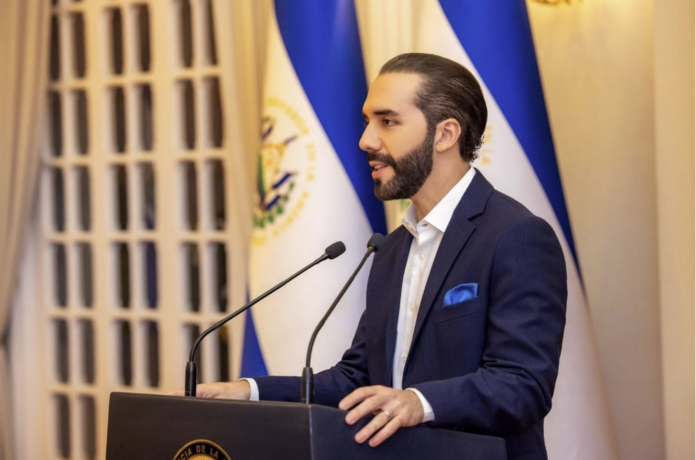84.7 percent. That was the percentage of voters who decided to give the incumbent president a second term as president of El Salvador this past month. This was, by all means, an expected landslide victory for a leader that transformed a country that, just less than a decade ago, appeared to be in a tailspin. The murder rates were once the worst in the Western Hemisphere, with the country recording an average of 18 homicides a day in 2015. With violence against women at record levels and children increasingly joining gangs due to a lack of other opportunities, the country was at a breaking point. Enter: Nayib Bukele.
Bukele’s rise appeared from humble beginnings in the small coffee town of Nuevo Cuscatlán. Winning his first political campaign for the city’s mayoral seat by only 169 votes, the narrow margin of votes failed to prevent Bukele’s bold plans. From the very offset, his campaign focused less on traditional party lines and more on a vision for the city that snuffed out crime and corruption while focusing on education. With the illiteracy rate declining from 15 percent to zero percent and only a single homicide occurring in his district while in office, the young Bukele emerged as a strong candidate on a national stage dominated by aging voices of a civil war that had ended decades ago.
As old politicians and old policies increasingly failed to address the crisis of violent gangs across El Salvador, Bukele hoped to bring his solutions to the nation as president. Winning a decisive victory in 2019, change came quickly from the government. Known today more broadly as the “Territorial Control Plan,” it called for a surge of police and military forces into public spaces while simultaneously suspending constitutional rights such as protections against illegal arrests, the right to counsel and instituting prolonged imprisonment. With broad support from a public wary of gang violence, he increasingly bypassed the national legislature and reshaped the country’s judiciary– taking a hatchet to the system of checks and balances to become, as he describes himself, the “world’s coolest dictator.”
The result? Since these laws went into effect, the security forces have arrested nearly 75,000 suspected gang members, resulting in almost one in 45 adults now being in prison. The lack of due process and sheer scale of operations have also led to human rights groups reporting 190 deaths and over 5,000 abuses related to the crackdown. However, since taking office in 2019, intentional homicide rates have decreased from 38 per 100,000 in that year to 2.4 in 2023—well below the Latin American average of 16.4 for the same year. El Salvadorians are finally regaining a sense of peace and choosing to return to their homes instead of fleeing their country. Why does this matter, then?
Despite the Biden administration’s hesitance to acknowledge it, the United States has been facing a growing crisis at its southern border for years now, and El Salvador has historically been a significant source of these refugees. With leaders across Ecuador, Peru and Latin America increasingly drawing from Bukele as a source of inspiration, there are broader concerns about regional democratic backsliding. While it may be in America’s interest to see stronger governments stem immigration now, one must also caution against growing authoritarianism in the future.
Yet, while Western objective, rational and emotionless analysis might point to these faults as reasons not to vote for such a leader, a recent interview with the editor of special investigations at El Faro, Óscar Martínez, might reveal an answer as to why El Salvadorians continue to support Bukele. “It is because people didn’t live in a democracy, they never have; they lived in a criminal regime where gangs raped their children. So, now, the state of emergency is the lesser evil. There are people who will accept having their son arrested if it means gangs won’t be in their neighborhood.”






















